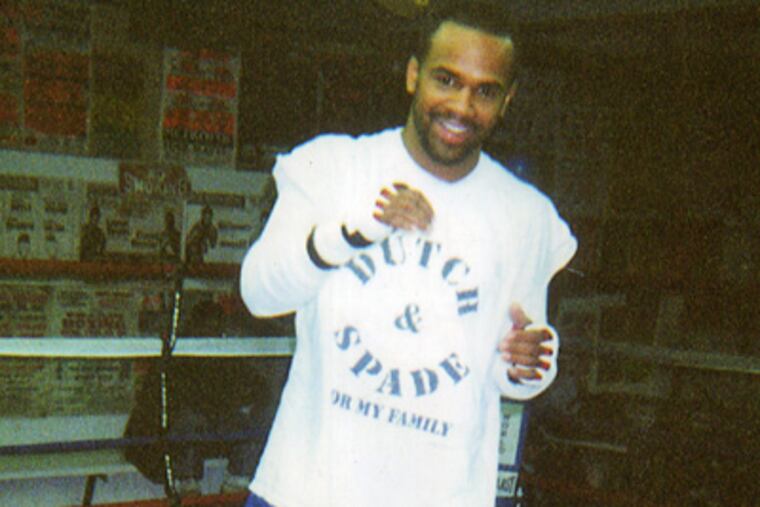Convicted kingpin seeks to fire lawyer in firebomb case
Convicted drug kingpin Kaboni Savage, facing a racketeering trial that could end with a death sentence, wants to fire his attorney and represent himself.

Convicted drug kingpin Kaboni Savage, facing a racketeering trial that could end with a death sentence, wants to fire his attorney and represent himself.
Savage is due in court Thursday to argue the issue, according to his court-appointed lawyer, Christopher Warren.
Warren said Savage had informed him that he no longer wanted him as a lawyer. He said Savage refused to see him when he traveled to New York City last week to visit him at the Metropolitan Correction Center, where he is being held.
Savage is serving a 30-year sentence for his conviction on drug-trafficking charges in 2005. Warren also represented him in that case.
"I think this raises serious issues about his competency," Warren said, pointing out that Savage has been held in solitary confinement for much of his time in prison.
"I think it's taken a toll. You know that expression, 'A person who represents himself has a fool for a client'? The Kaboni I know is not a fool. But this is certainly a foolish move on his part."
Assistant U.S. Attorney David Troyer, who is prosecuting the case, could not be reached for comment.
Savage and three codefendants were indicted in April. At the time, U.S. Attorney Laurie Magid said Savage headed "perhaps the most violent drug gang ever seen in the city of Philadelphia."
The Savage organization, according to authorities, trafficked in multiple kilograms of cocaine and used fear and intimidation to dominate the drug underworld and silence potential witnesses.
Seven of the 12 murders listed in the indictment fit a pattern of witness intimidation that authorities allege was Savage's trademark.
"No witness, no crime," Savage said on one of dozens of secretly recorded conversations that are expected to be entered as evidence.
Prosecutors have not yet announced whether they will seek the death penalty. That decision is pending the approval of the U.S. Attorney's Office in Washington.
Savage, 35, a former professional boxer, testified in his own defense at his first trial. From the witness stand, he denied that he was a drug trafficker, claiming that he sold compressors used by drug dealers to package cocaine in kilogram blocks.
He acknowledged that he had been picked up on tape threatening potential witnesses and their families, but said he was venting his anger and had no intention of following through.
In the current case, he is accused of ordering the firebombing of a North Philadelphia home occupied by the mother of a witness against him in his earlier trial. The witness, Eugene "Twin" Coleman, was an underworld associate.
Before the trial, Coleman's mother, Marcella, and his 15-month-old infant son, Damir Jenkins, along with another woman and her three children ages 10, 12, and 15, were killed in an early-morning blaze that swept through Marcella Coleman's home in the 3200 block of North Sixth Street.
Two codefendants in the pending case, Lamont Lewis and Robert Merritt, are charged with firebombing the home on Savage's orders.
Savage was later heard on tape joking that Coleman be given "barbecue sauce" to bring to the funerals.
The indictment also accuses Savage and codefendant Steven Northington of the murder of Tybius Flowers.
Flowers, who was also a professional boxer, was gunned down just days before he was to testify against Savage in a homicide case scheduled for March 2004 in Common Pleas Court.
Without Flowers' testimony, the district attorney's case fell apart.
Savage raised the issue of representing himself during a hearing last month before U.S. District Judge R. Barclay Surrick, expressing discontent with his lawyers. Besides Warren, Savage is being represented by an assigned attorney who specializes in death-penalty cases.
But Surrick left the issue unanswered while ordering both prosecutors and prison officials to correct confinement issues that Savage said limited his ability to prepare for trial.
Among other things, he claimed he was denied access to the prison library and had not been allowed outside in seven months.
That hearing, attended by several family members and friends, ended with Savage's berating the prosecutors and FBI, calling the investigators "Nazis," and claiming he was the target of racial profiling.
"Why don't you just lynch me and make your ancestors proud?" he shouted as the hearing ended and he was led away in handcuffs.